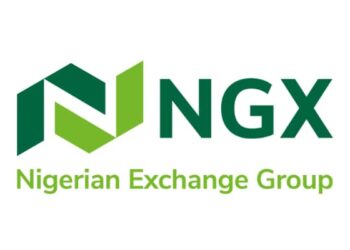High inflation as well as economic uncertainty, have had significant impacts on businesses, manufacturers, and households, including individual lifestyles and well-being in recent times. The direct consequences of these impacts continue to have serious implications. Globally, no country is immune to inflation. Around the world, inflationary pressure has been experienced in the USA, the UK, and many other developed and developing nations. But in Nigeria, the peculiarity is that inflation has been getting higher steadily for the last two years. Nigeria is one of the countries where inflation has grown the fastest, and it has been a concern for many businesses. The troubling trend is that most of the basics and necessities are increasingly out of reach for the majority of people. Indicating that the country’s cost of living has risen at an alarming rate. That is, the rise in household spending required to maintain a consistent and decent quality of life has been a source of anxiety for many. The National Bureau of Statistics (NBS) says Nigeria’s headline inflation rate increased to 33.69 per cent on a year-on-year basis as of April 2024. The percentage change is the highest in the last five years, according to the records.
Without a doubt, the food inflation trend over the last two years has been overwhelming. The proportion of the majority’s income that is spent on food has remained ridiculously high. The persistent rise in inflation results in a decline in the buying power of many Nigerians, who are real-time getting poorer. Because they will be forced to prioritise significant spending and the affordability of essentials will continue to decrease. The consequences of high inflation are a spike in unemployment numbers, a rise in poverty rates, declining savings, a high number of jobless youths, crimes, and unrest. A report by Aljazeera titled “Inflation rises in Nigeria amid fuel scarcity and insecurity” indicated that four (4) out of ten (10) Nigerians are living below the poverty line. So, with this trend, the author has noticed a spike and sharp rise in the demand for substituted products and services by the majority of the citizenry in the country.
For the majority of businesses, the persistent inflation in the country has made the high cost of running and maintaining independently generated power unbearable, particularly the cost of diesel. This has resulted in a high cost of running businesses. However, this cost is passed on to the consumers without notice. When this cost is passed and consumers find it intolerable, then a change in demand is triggered by switching to substitute products. The propensity for this trend is high and it has been the order of the day. Substitute products or goods are alternative goods that could be used for the same purpose but with less quality or satisfaction. Therefore, in the presence of inflation, substituting means that consumers seek out alternatives that are frequently low in price, most of the time low in quality, inferior, and largely unregulated. The demand for substitutes continues to rise because the masses need to survive at all costs, so who has the blame? The consumers or the businesses? So long as the price of goods and products continues to increase, demand for their substitutes will continue to rise. Consequently, business operators need to be aware of this. Because where there is low or no demand for substitute products it makes the company profitable and such industry more attractive. In a market where there are fewer substitute products, there is a higher probability of businesses earning greater profits, but the reverse is the case, with inflation and the current realities.
From a business perspective, substitute products create rivalry, loss of revenue, weak sales, loss of potential customers or consumers, low or no patronage, and threats to business survival. The main absurdity is that businesses cannot even identify the providers of these alternatives, because they remain largely in the dark and the quality of these readily available cheap alternatives is significantly compromised, with gross and growing health implications. As it stands market-leading companies and products could even suffer business continuity issues if the lower-priced alternative continues to gain market share and the interest of the masses.
As a response, it is a time for businesses to re-strategize, engage in high marketing and promotional campaigns, and innovate in line with customer expectations and patronage-improving products, and lower prices. Again, businesses can review their pricing model at this time to accommodate consumers and customers with waning purchasing power. It is also important for the government to play a bigger role in regulating substandard, inferior, and bad products, especially those that are dumped on the Nigerian market.
Businesses can fail as a result of substitute effects and substitute products outperforming the original. In the view of the author, consumers largely make their choices based on their available spending power and make constant adjustments based on price changes, most of the time on impulse. Many are unaware that the high inflation rate in the country is one of the major reasons why the Naira is losing value. Right now, it’s important to look at and understand how substitution can affect the economy, businesses, and environment to stop high death rates and illnesses. Therefore, the authors recommend that the government should make a deliberate effort to tackle the key issues in the country: insecurity, incessant power issues, continued exchange rate instability, and non-availability of forex to genuine business operators and exporting companies. Inflation could remain an issue unless these issues are given headlong attention. Good luck!
How may you obtain advice or further information on the article?





